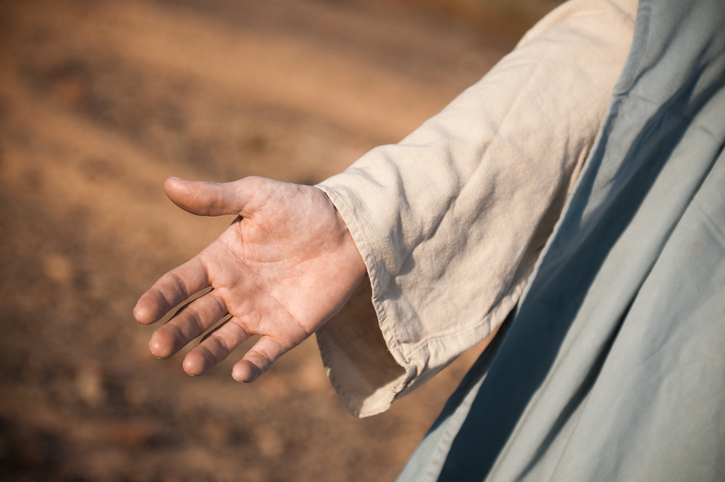We do not hear about lepers today. Generally, when the word is used, it is used more as a figure of speech to describe someone who has become an outsider for one reason or another. The term leprosy was a wide-ranging term for any visible skin ailment in ancient times. One form of leprosy in Biblical times was known as nodule leprosy. It would discolor the skin and skin nodules would form in the folds of the face, on the nose, lips, and forehead, ultimately disfiguring the person who was afflicted with it. The disease would also cause ulcers on the body and vocal chords, and eventually even affect the person’s mental state. Another form of leprosy was known as anaesthetic leprosy. This form of the disease would attack a person’s nerves, especially in their hands and feet, eventually causing them to lose fingers, toes, and whole limbs. Finally, any type of skin disease was considered leprosy including psoriasis.

Besides the intense physical suffering that this disease inflicted on its victims, there was also the pain of the social stigma that came with it. People long ago did not understand the nature of disease, how they were contracted, or how they occurred. Disease and illness were seen as punishments from God for sins that a person had committed. For this reason, and also for the contagious aspect of diseases, those who were found to be sick with leprosy were cast out of society. The first reading this Sunday from the Book of Leviticus tells us what was expected of those poor souls who found themselves afflicted. The unjust social stigma and shame that they faced, through no fault of their own, only compounded the suffering that they were already experiencing in their bodies. Leprosy was essentially an undeserved excommunication for which there was no real remedy. Only those who had a passing affliction, which would not have been true leprosy, were able to find themselves “clean” and able to rejoin the community.
This Sunday, Mark’s Gospel recounts the scene where our Lord Jesus is approached by a leper. The encounter was unthinkable as this man, because of his condition, was forbidden to be around others, let alone approach someone. He asks Jesus to heal him, if Jesus wills to do so, and Jesus does. The Gospel tells us that Jesus was moved with pity. Other translations say that he was filled with compassion; however, some scholars say that both of these are wrong, that the proper translation was that he was filled with anger. Anger?
Jesus’s anger would not have been with the man, but rather with the social injustice that further victimized the man, causing him to qualify his request to be healed with “if you wish.” Of course, Jesus wanted to heal the man, to “make him clean,” to bring him from the outside back into the community.
Are we willing to do the same for the “lepers” among us?
We know all too well of societal sins: racism, sexism, and other forms of discrimination. As Christians, it should be second nature for us to be angered by the injustices around us and for us to seek to end them, to bring those on the outside in. Sadly, these sins find their way into the Church’s members as well and there is no room for these attitudes and behaviors whatsoever. There are also “lepers” around us whom we do not recognize; those who carry shame and guilt for reasons unknown to us. For them we must always be ready to be sources of the mercy and compassion of God.
Why does Jesus tell people that he has cured, such as the man in this Sunday’s Gospel, not to tell anyone? He does this because he knows that there is going to be pushback from the powers of the world who do not want to hear and heed his message or to accept the change that Jesus seeks to bring. Jesus knows that this pushback is inevitable, but he wants to be able to preach and minister as freely as possible in the time that he has, which is limited. If we would follow the Lord’s example and seek to bring in those who have been cast out, we too can expect pushback from the powers of the world. These powers do not accept the Gospel today any more than they did 2,000 years ago. So, do what is right and holy and let the world pushback. Seek those who have been pushed out, those who are the modern “lepers.” The world will not like it, but the world’s opinion is ultimately worthless. Remember, we who bear the name “Christian” do not belong to the world.
Father Christopher House is the Rector-Pastor of the Cathedral and serves in various leadership roles within the diocesan curia.